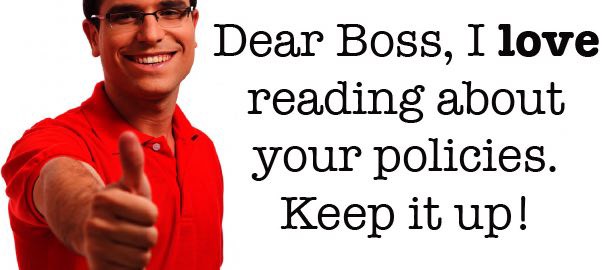When you become a new manager you might want to say to your folks, “Hey, my door is always open.”
Then shoot them a crooked smile with your finger gun.
I know I did.
In the spirit of over-thinking everything I went further and posted a formal open-door policy. As with many of my ideas, this one started its life in a Manager Tools Podcast on Open Door Policies.
My Door is Open
To be more explicit, “My door is always open to anyone.”
Like many of you I don’t have a door. I mean that anyone can come to me professionally to discuss anything.
Policy: My door is always open to anyone
- Always means always, however
- Respect my family. I may have to defer the conversation if you call during a family event.
- Now is NOT necessary. I may have to defer the conversation to later in the day.
- I will hear you today. Even if I have to defer the conversation, I will make time to speak with you today.
- You may have to schedule it. I keep my calendar up-to-date. I may have to ask you to find time on my calendar to set up a meeting. When scheduling a meeting include the topic. No blind requests, please.
- My First Job is to Listen
- I’m always an employee and a manager: Don’t expect me to keep relevant information from my manager. If you disclose information that I must act on then I can not pretend not to know it.
- I’ll always listen: I promise to hear you out. I want to hear about problems and issues, but you can’t expect me to always solve them on the spot. Hearing your request is not an automatic commitment for action.
- We can meet in private: Normally I’ll just meet in my cube with voices lowered. If you want more privacy we can try to find an empty room or you can schedule a room on my calendar.
- I will take notes: Since you approached me about work I will treat it as a work conversation and take notes.
- My Second Job is to Honor Management:
- If you don’t work for me I will refer you to your manager.
- If you want more developers I will refer you to your program manager and product manager.
- If you want priorities changed I will refer you to your product manager.
- If you convince me your manager is wrong I will still refer you to your manager.
- I will follow-up:
- Even though I may refer you to other managers or points of contact, I will still consider the information and take proper action as necessary.
- If you bring an issue to me I expect you to be prepared to give me updates as the situation changes. Please don’t give me drive-by issues.

